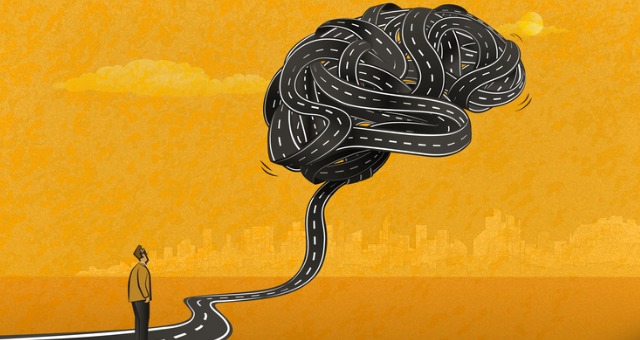This article first appeared in Academic Leader on June 2, 2018 © Magna Publications. All rights reserved.
A recent search prospectus for a provost position at a mid-sized institution listed a number of qualities and qualifications desired in potential candidates. The categories were typical for this type of cabinet-level post: “leadership,” “relationship building,” and “communication skills” were just a few of a two-page laundry list of preferred credentials. But one particular bulleted item under the category “personal characteristics” set the bar of expectations: “The eagerness and stamina to serve 24/7 as an institutional advocate and spokesperson.” Ironically, this item was listed on the same page as the category “balance” and right above the bulleted item of desiring “a sense of humor,” but it begs the question: is that what’s best for our academic leaders and the colleges and universities they lead? In this era of disruptive change in the academy, will they truly be successful, passionate representatives of our institutions when they have and are expected to live a koyaanisqatsi?
According to the Hopi Dictionary (Hopìikwa Lavàytutuveni), the Hopi word koyaanisqatsi is defined as a “life out of balance.” The prefix koyaanis– means “chaotic” or “corrupted,” and the word qatsi means “life” or “existence,” literally translating koyaanisqatsi as “chaotic life.” In traditional Native American cultures, balance and harmony are not abstract concepts but recipes for living their daily lives. With the enormous challenges occurring in higher education these days, it is no wonder that for many of us, the ingredients of our daily recipes reflect a non-Hopi state: instability and discord. As academic leaders plugged into a technological world through a constantly active cellular umbilical cord, our work is constantly at our fingertips and tugging on our sleeves.
But should that be the stated expectation of an academic leadership position: on-call 24/7 like a doctor (the medical one, not the PhD)? Numerous studies have demonstrated the issues of occupational stress from a work-life imbalance, resulting in physical, emotional, and psychological consequences to the individual. But there is also a toll on the organization in decreased productivity; the reality is that it is difficult for many of us to do our best work when under duress, and increasing the quantity of hours worked does not necessarily increase the quality of work produced. The law of diminishing returns applies here, and in many cases, results in a condition known as negative returns, where you end up decreasing your overall productivity, possibly doing more harm than good.
This toll extends up and down the organizational chart to the employees above, below, and beside you, as the koyaanis-culture is set from the top. Servers running 24/7/365 in the cloud allow us to do our work whenever and wherever we are, including snow days and holidays. In fact, if email volume was a metric in determining the day of the week, many of us would have a hard time telling the difference between a regular work day and a day the institution was closed. Imagine your president emailing you an issue to deal with on Thanksgiving Day. Is it an emergency? Probably not; more likely, your president is not a fan of parades or football and has found some time to clean out their in-box. Does your response wait until the following Monday? Probably not, as the odds are good that you respond sometime between the turkey and the pumpkin pie since you also have found an opportunity to check your email between courses. If the resolution includes your subordinates, you have likely cc’d them on your response to either keep them “in the loop” or delegate “part of the loop” to them. Do they wait until Cyber Monday to respond? Probably not, as they found that same opportunity to check their email between courses and will likely chime in some time before the Black Friday sales begin. For the official record of ironies in this story, many of these same people offered their colleagues good wishes for a happy Thanksgiving, asked about their plans for the four days off, noted the opportunity to spend quality time with family and friends, and concluded by saying, “See you on Monday . . . have a great, LONG weekend!”, emphasizing the word “long” as if it were a synonym for “rest and relaxation.” Long in duration? Yes. Disconnected from work? Not so much.
So how can we as academic leaders manage our koyaanisqatsi in this time of disruptive change in higher education? The suggestion box of ideas overflows with possibilities; here are just a few:
- Managing and prioritizing time, which includes work time, family time, social time, and alone time; this requires us to determine what are the most important things in our lives and maximize time for those things.
- Defining what is a real emergency and developing alternative communication methods for those situations; what we do is important, and there are often times when a crisis is genuine and must be responded to in a timely fashion. Setting a “text for emergencies, email for everything else” internal policy may help in setting boundaries.
- Managing expectations above and below us in the organizational chart; if we do not take time off or send emails on weekends and holidays, that becomes the “norm.” Having frank discussions about what we expect from our subordinates as well as what our supervisors expect of us makes sure that everyone is on the same page.
- Getting more sleep; this assumes we are actually getting sleep in some measurable form in terms of quantity and quality, but that topic might be better saved for another time after we all get some rest.
- Disconnecting from technology at certain times and really meaning it; one could justify (as I often have to my wife) that there is a difference between reading emails and responding to emails on vacation, but once you begin to look at your in-box when you are on vacation, your brain begins to switch into “work mode” and you are no longer on vacation..
Perhaps the most important takeaway is that YOU are the manager of YOUR koyaanisqatsi. You decide what “balance” looks like in your life and what is important in terms of your core values. Finding that balance in work and in life outside of work will help fuel your passion to becoming that successful academic leader that truly makes a difference. There are no right answers, but if “24/7” works for you, there is a provost position at a mid-sized institution that might be your calling. Just make sure you bring your sense of humor.
Richard L. Riccardi is senior associate provost and dean of libraries at Rider University.
References:
Hopi Dictionary Project (University of Arizona Bureau of Applied Research in Anthropology). Kenneth C. Hill (Editor in Chief, Project director), Emory Sekaquaptewa (Cultural editor), Mary E. Black (Associate Editor), Ekkehart Malotki (Senior Contributing Editor), Michael Lomatuway’ma (Contributing Editor), eds. Hopi Dictionary : Hopìikwa Lavàytutuveni: A Hopi–English Dictionary of the Third Mesa Dialect With an English-Hopi Finder List and a Sketch of Hopi Grammar. Tucson, Arizona: University of Arizona Press, 1998.





